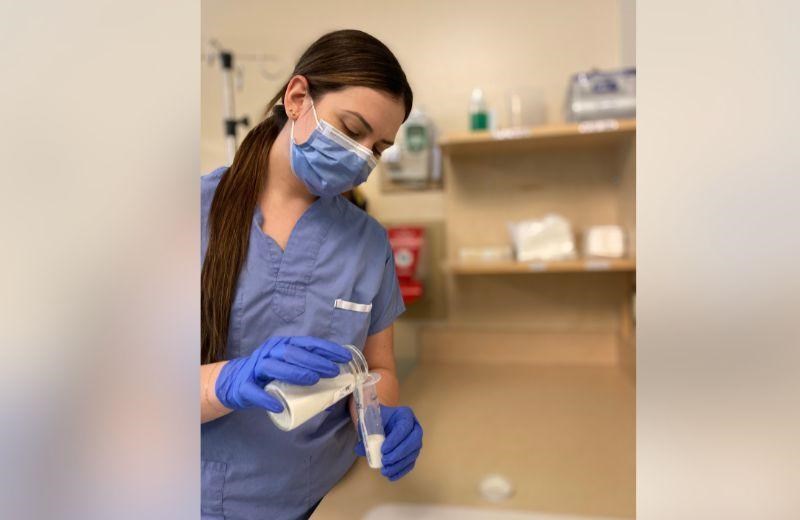Last year was a record-breaking year for human milk donations in northern BC.
In 2023, 10 approved donors from northern BC donated a total of 173,947 mL of milk via the milk collection depot at the Prince George neonatal intensive care unit (NICU).
At almost 174,000 mL, the 2023 totals are about 170 per cent of recent annual donation averages. For comparison, in the preceding years, the NICU collected between 88,100 mL and 113,300 mL.
“Donor milk is extremely beneficial for our babies,” said Emily Fetterly, a NICU nurse at UHNBC.
“When their parents’ own milk is not yet available, our smallest and youngest patients get to start their feeding journeys with something easy on their tummies and protective of their health. This is such a victory.”
On average, six to eight babies per month received pasteurized donor human milk while in the NICU in Prince George in 2023.
“I’ve heard from countless families that are so grateful for donor milk – it’s one less stress for them during their time in the NICU,” said Fetterly.
“When I think about all the donors who have taken their time and resources to provide their milk for our patients, it truly warms my heart.”
BC has only one certified human milk bank located in Vancouver which ships pasteurized human milk to over 20 hospitals including all 14 BC NICUs.
The milk collection depot located at the UHNBC in the NICU is the only one of its kind in Northern Health.
Those interested in donating human milk in 2024 must review the screening criteria, and contact BC Women's Milk Bank to start the screening process.
“If I could personally thank each donor, I would,” said Fetterly.
“They take the time to pump extra milk and deliver it to the NICU, and then we ship it to the milk bank in Vancouver to be pasteurized. Their time and commitment have a considerable impact on the early days of our tiniest and sickest patients.”



